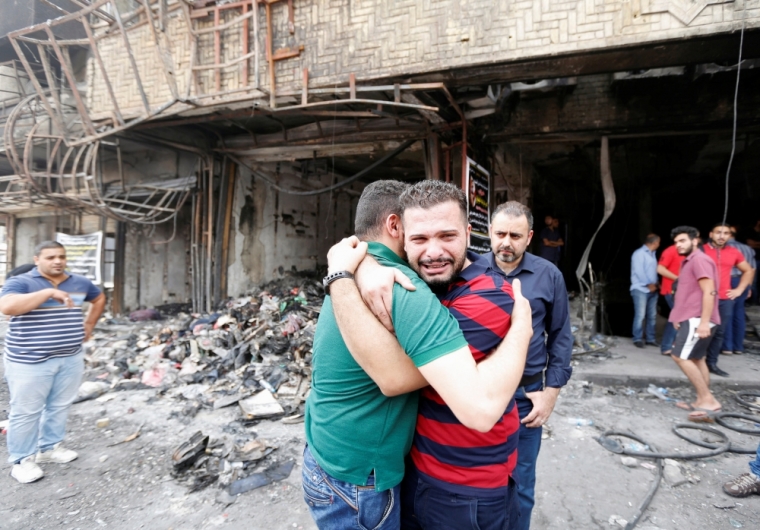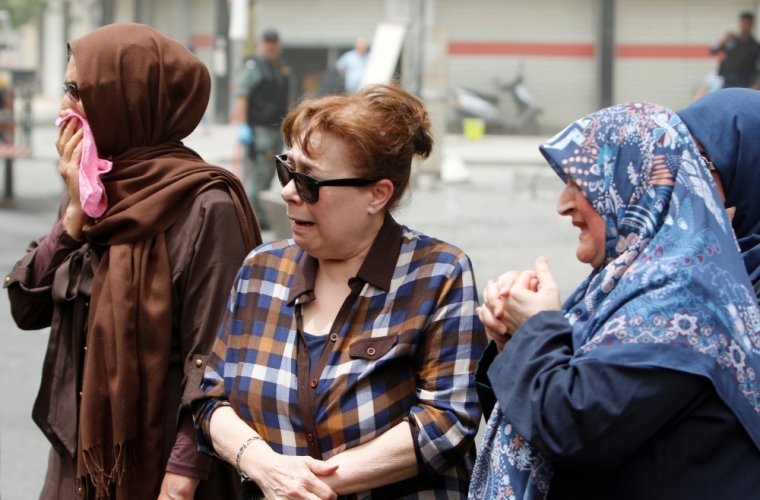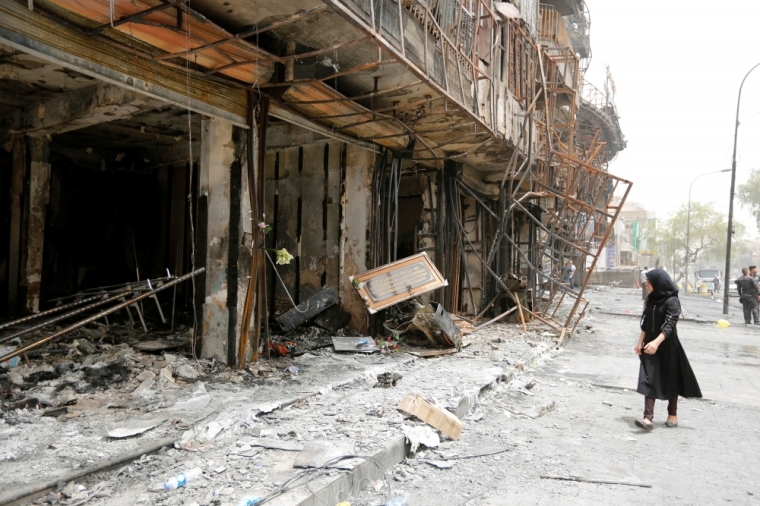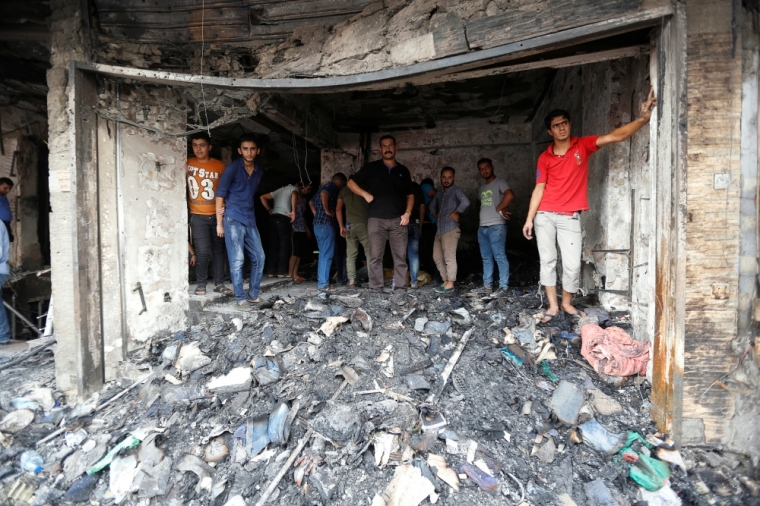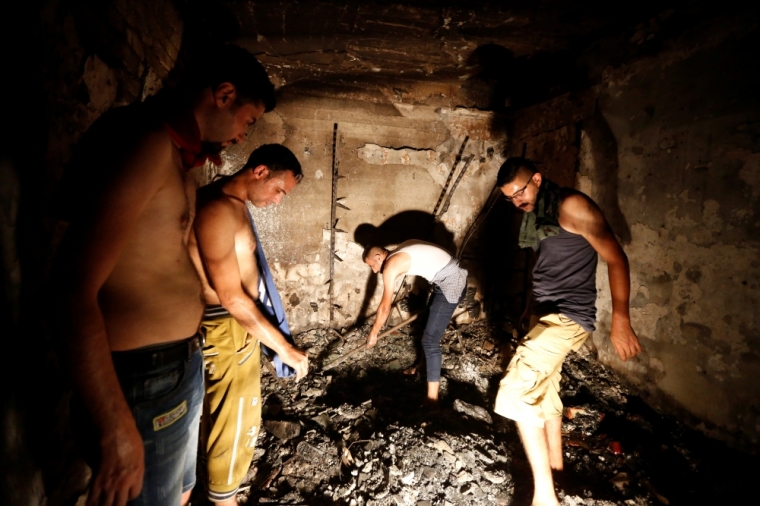Baghdad Terror Attack: Iraqis Demand Crackdown on ISIS Sleeper Cells as Death Toll Rises to Over 150
BAGHDAD — The death toll from a suicide bombing in a Baghdad shopping district has risen to over 150, fuelling calls for security forces to crack down on Islamic State sleeper cells blamed for one of the worst ever single bombings in Iraq.
Numbers rose as bodies were recovered from the rubble in the Karrada area of Baghdad, where a refrigerator truck packed with explosives blew up on Saturday night when people were out celebrating the holy month of Ramadan.
The toll in Karrada stood at 151 killed and 200 wounded by midday on Monday, according to police and medical sources. Rescuers and families were still looking for 35 missing people.
Islamic State claimed the attack, saying it was a suicide bombing. Another explosion struck in the same night, when a roadside bomb blew up in popular market of al-Shaab, a Shi'ite district in north Baghdad, killing two people.
The attacks cast a shadow over victory statements made last month by Prime Minister Haider al-Abadi's government, after Iraqi forces dislodged Islamic State from Falluja, the stronghold of the ultra-hardline Sunni insurgents near Baghdad.
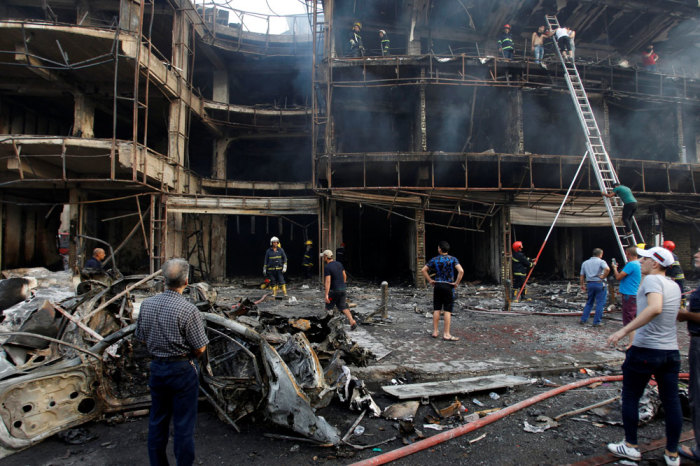
Government officials ordered the offensive on Falluja in May after a series of deadly bombings in Shi'ite areas of Baghdad that they said originated from Falluja, about 50 km (30 miles) west of the capital.
"Abadi has to have a meeting with the heads of national security, intelligence, the interior ministry and all sides responsible for security and ask them just one question: How can we infiltrate these groups?" said Abdul Kareem Khalaf, a former police Major General who advises the Netherlands-based European Centre for Counterterrorism and Intelligence Studies think tank.
In a sign of public outrage at the failure of the security services, Abadi was given an angry reception on Sunday when he toured Karrada, the district where he grew up, with residents throwing stones, empty buckets and even slippers at his convoy in gestures of contempt.
He ordered new measures to protect Baghdad, starting with the withdrawal of fake bomb detectors that police have continued to use despite a scandal that broke out in 2011 about their sale to Iraq under his predecessor, Nuri al-Maliki.
The hand-held devices were initially developed to find lost golf balls, and the British businessman who sold them to Iraq for $40 million was jailed in Britain in 2013.
Abadi ordered that the fake devices be replaced by efficient detectors at the entrances to Baghdad and Iraq's provinces.
Karrada, a largely Shi'ite district with a small Christian community and a few Sunni mosques, was busy at the time of the blast as people were eating out and shopping late during Ramadan, which ends this week with the Eid al-Fitr festival.
Falluja was the first Iraqi city to fall to Islamic State in January 2014. Abadi said the next target of the Iraqi forces is Mosul, the de facto capital of the militants and the largest city under their control in both Iraq and Syria.
(Writing by Maher Chmaytelli; Editing by Dominic Evans)










